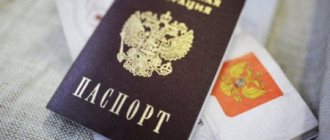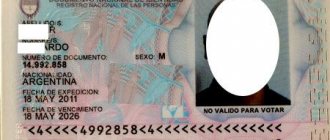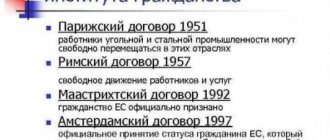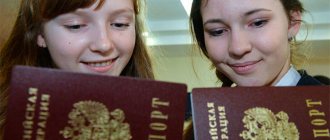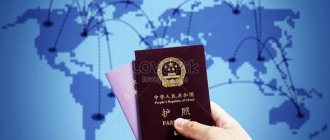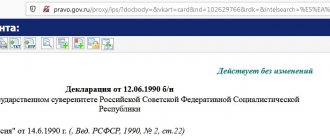Lithuania is located in the northeastern part of Europe and has been part of the EU since 2004. Membership in the European Union has a positive effect on the economic development of the country. For some, citizenship of a Baltic state means an improved quality of life, the opportunity to travel to European countries, study and work; for others it is reuniting with family or opening a business, while others simply want to return to their homeland.
Lithuania on the map
Grounds for obtaining Lithuanian citizenship
Individuals who have lived in the country for a long period of time, or wish to restore lost citizenship, or reunite with a family living in Lithuania, have the right to apply for Lithuanian citizenship. There are 7 ways to become a citizen of this hospitable country.
Naturalization
Any person who:
- lived in the state for at least 10 years (for spouses of Lithuanian citizens – 7 years, for those returning citizenship – 5 years);
- has a residence permit and works legally in the country;
- passed an exam in the Lithuanian language, confirmed knowledge of the laws and constitutional foundations of the state, refused
- from the citizenship of your country;
- has no problems with the law.
If a person meets all the listed requirements, he can apply for citizenship.
Family reunion and marriage
Foreign citizens who are married to a Lithuanian can apply for citizenship after 7 years of married life.
For 7 years, the spouse is not allowed to leave the country for more than six months.
The seven-year period of compulsory cohabitation is reduced to 5 years if the spouse is a former exile, political prisoner or relative of such. Also, spouses who have been married for at least a year to a Lithuanian who has died have the right to premature consideration of citizenship documents.
Lithuanian passport
By birth
In accordance with the legislation of the country, children who:
- Were born on the territory of the Lithuanian state or outside it, and both parents or one of them are citizens of Lithuania;
- Adopted by local residents. And also children who are citizens of the Republic and who are adopted by residents of another country retain their status;
- Born on the territory of the state, but stateless parents live in the country legally;
- Abandoned by parents.
Children of foreigners born after their parents acquired citizenship also become Lithuanians by birthright.
Work, business in Lithuania
For businessmen and employed persons, Lithuanian legislation provides for the issuance of a residence permit. After an annual residence permit renewal for 5 years, a businessman or employee has the right to apply for permanent residence, then citizenship of the Republic of Lithuania.
By origin
You need to realize that Lithuanian origin and Lithuanian citizenship are different concepts. Lithuanian citizenship can be held by a person of any nationality.
Lithuanian origin means both or one of the person’s parents, grandparents, great-grandparents or great-grandfather were citizens of Lithuania, and he also considers himself Lithuanian.
In this case, the assignment of Lithuanian citizenship is possible in a simplified manner, namely, the condition of long-term residence in the country is not imposed.
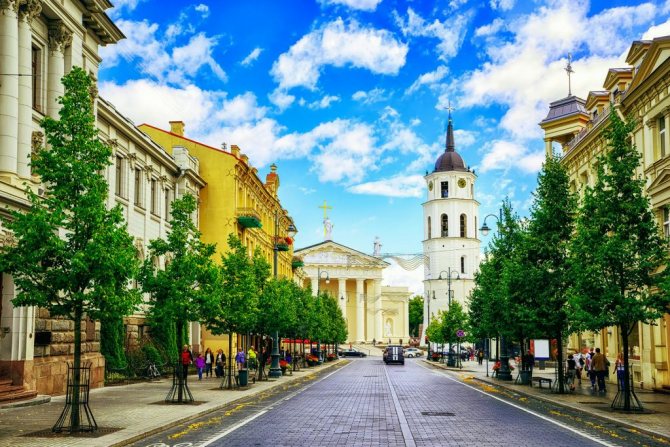
Vilnius, Lithuania
Restoration of citizenship
The government of the Baltic state provides for the restoration of citizenship for those persons who were citizens of Lithuania before June 15, 1940 - the recognized official date of the Soviet occupation and the loss of the country's independence.
If these persons, or their descendants, were deported, repressed or forced to leave the country due to non-acceptance of the current political regime before March 11, 1990, they have the right to restore Lithuanian citizenship. Such persons are also not subject to the requirement of long-term residence on the territory of the state.
In exceptional cases
This method is acceptable only for those citizens who have special services to the country, speak the Lithuanian language, and lead a lifestyle that shows high integration into Lithuanian society.
The decision to confer citizenship in exceptional cases is made only by the current President of the Republic of Lithuania.
Procedure for obtaining citizenship
Documents that were previously described by us. submitted to the Citizenship Commission; you can also contact the Ministry of Internal Affairs. If the candidate permanently lives in Lithuania, then he needs to go to the district police department or the Migration Department. The citizenship law does not force the candidate to come in person; documents can be submitted by mail, through a courier or an authorized representative. In this case, the applicant’s signature must be certified by a notary.
If the candidate does not live in Lithuania, the entire package of documents can be submitted through the consulate. Please note that all documents must be translated into Lithuanian; this fact is certified by a notary. Russia and Lithuania have an agreement on mutual recognition of documents, so an apostille is not required.
When submitting documents, a fee of 51 euros is charged for obtaining citizenship and 41 euros for restoration. If documents are submitted through a consul, an additional 50 euros will be charged. The review procedure has been simplified and does not exceed 6 months; for naturalization - up to 3 months in the Department, then a package of documents is transferred to the Citizenship Commission. The general period is from 1 to 2 years.
After receiving a positive answer, you must come to the Migration Department to receive a passport. To do this, fingerprints are removed and a photograph is taken. A plastic card with biometric data and personal information is issued. Then a passport is prepared and issued. As we can see, obtaining Lithuanian citizenship for Russians is not so easy; this procedure is quite labor-intensive and time-consuming, but if you decide, then it’s worth going to the end!
Process for obtaining Lithuanian citizenship in 2021
In order to implement the decision to obtain citizenship of a Baltic country, you need to fulfill a number of actions, requirements and rules established by the government.
Requirements for an applicant for citizenship
Lithuanian legislation does not provide for any special requirements for a candidate. Anyone can become a citizen of the country if they have not committed serious criminal offenses.
Obtaining residence permit and permanent residence
Lithuanians issue temporary residence permits (residence permits) to migrants on the following grounds:
- having your own business in Lithuania or employment in local companies;
- reunification with relatives living in the Republic or marriage to a Lithuanian;
- getting an education;
- need for medical care;
- refugee;
- registration of guardianship over a minor citizen of Lithuania.
The document is valid for 12 months. There is a possibility of annual renewal. After a 5-year period of residence in the country with a residence permit, it is allowed to request a permanent residence permit (PR). Then, after living for the required period of time (from 5 to 10 years) under permanent residence, you can apply for Lithuanian citizenship.
Collection and submission of documents
Residents of Lithuania submit documents directly to the Migration Department of the Republic of Lithuania, persons living abroad - to the diplomatic missions of Lithuania located in the country (for those who are starting the procedure for restoring citizenship).
The complete list of required documents, taking into account the method of obtaining citizenship, is as follows:
- A completed special form is a request for citizenship. The contents of the paper vary depending on the method by which the applicant wishes to obtain a Lithuanian passport;
- Valid identification document – foreign passport;
- Permanent residence permit;
- Confirmation of no criminal record;
- Written renunciation of current citizenship, if there is no right to obtain dual citizenship;
- Papers confirming a significant contribution to the development of the country (when obtaining citizenship in exceptional cases), as well as letters of recommendation from Lithuanians;
- Documents proving Lithuanian origin: passports, birth or death certificates of blood relatives (for acquiring citizenship by descent);
- Marriage certificate (for those who receive citizenship due to living in a family union with a Lithuanian);
- Information about a permanent source of income and evidence of long-term residence in the country (if obtaining citizenship by naturalization).
If any document is written in another language, an official translation into Lithuanian is required.
An exam on knowledge of the language and the Constitution of Lithuania is mandatory for those persons who obtain citizenship through naturalization, family reunification, or marriage.
All persons who wish to obtain a Lithuanian passport take the oath, without exception and regardless of the method of obtaining citizenship.
Time frame for obtaining citizenship
Applications for citizenship issues are usually considered within six months (if the naturalization route is chosen, then the decision may be delayed). In case of a positive outcome, the President of the Republic issues a Decree on granting citizenship. After the document comes into force, the new citizen is required to take an oath. Only after this does he become a full citizen of the Republic of Lithuania.
Expenses
The state fee for reviewing documents on the restoration of citizenship is 41 euros, in a simplified procedure - 50 euros, by naturalization or as an exception - 51 euros.
Documents required for obtaining citizenship
In order to obtain Lithuanian citizenship, the candidate must collect a package of documents:
- Petition (application) for citizenship and consent to take the oath to Lithuania. Must be issued in Lithuanian. Documents are signed for children by their parents or guardians.
- International passport and birth certificates of children.
- Permission to stay and reside in Lithuania.
- If your last name or first name has been changed, you must provide documents confirming this.
- If a person, as a general rule, does not have the right to dual citizenship, it is necessary to formalize the renunciation of the previous citizenship in writing.
- Certificate from the police confirming no criminal record or criminal record.
- If citizenship is obtained in exceptional cases - recommendations from Lithuanians about the contribution made to science, sports, art and others.
- For Lithuanians by origin - documents confirming the identity of Lithuanian ancestors and their relationship to them.
- For naturalization - confirmation of permanent residence in Lithuania, information about the level and source of income, exam results, a copy of the marriage certificate, if any.
Is it possible to have dual citizenship in Lithuania?
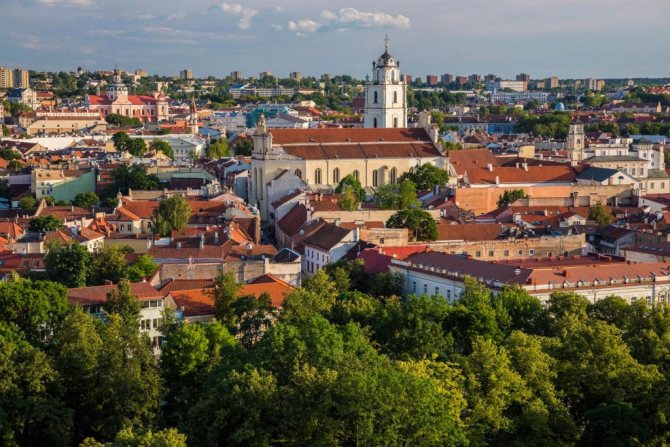
None. The government of the country does not provide such a privilege for residents of Russia, Ukraine and Belarus.
In the Republic of Lithuania, dual citizenship is prohibited for Russians. Applicants should renounce Russian citizenship in favor of Lithuanian citizenship.
This requirement does not apply to EU citizens - they are allowed to have citizenship of their home country and Lithuanian citizenship at the same time.
Main reasons for refusal to obtain Lithuanian citizenship
If all conditions are met, Lithuanians rarely refuse to obtain citizenship. This can happen if there are gross violations of the law, rules for providing documents, etc., such as:
- committing crimes and other illegal actions against the Lithuanian state at the international level;
- having a criminal record;
- false provision of information about yourself;
- failure to comply with the rules for obtaining citizenship prescribed by law (for example, insufficient period of residence in the country), or providing an incomplete package of documents.
In the absence of the listed points, a law-abiding applicant for citizenship will become the owner of a Lithuanian passport without any difficulties.
Finally, watch the video from the “Sergej Griffits” channel about the experience of obtaining Lithuanian citizenship:
